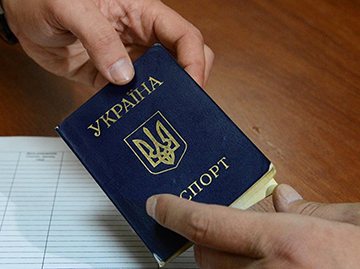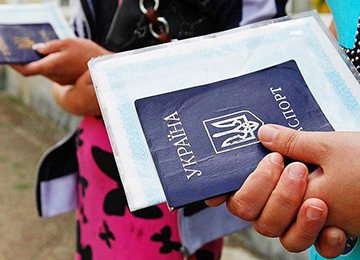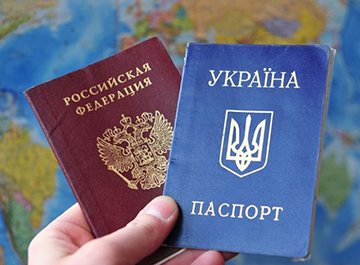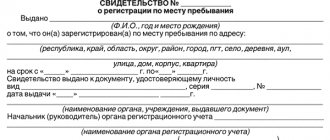The main difficulties in dissolving a marriage with a foreign citizen are related to the fact that the foreigner and the citizen of the Russian Federation belong to the jurisdictions of different states. Accordingly, in each specific case of termination of marriage, it is necessary to determine which law (Russian or foreign state) will govern the procedure for divorce from a foreign spouse. The applicable law is determined by:
- Based on the principle of territory. This means, for example, that a Russian citizen is obliged to dissolve her marital relationship in Russia with her husband, who is a citizen of another state, according to Russian laws. At the same time, the legal procedure for registering divorces of foreigners and Russians in a foreign country is valid and recognized in Russia.
- Based on the principle of citizenship. This means that Russians living abroad and who are in legal family relationships with foreign citizens have the right to divorce him (her) in a Russian court or Russian consulate abroad. In this case, the divorce process will be governed by Russian law.
Similar rules apply to marital unions concluded between Russians and stateless persons.
Features of divorce proceedings with foreign citizens
Below we will discuss in detail the features of the procedure for terminating a marriage with foreign wives and husbands under Russian law.
In the absence of disputes and disagreements
If a foreign spouse lives with his other half in Russia, then in this case the divorce takes place according to the standard procedure through the registry office. It is important that two conditions are met simultaneously:
- No children under eighteen years of age.
- Mutual consent of both spouses.
Both marriage partners prepare and sign a joint statement, the form of which can be downloaded from here, and collect the necessary documents, which include:
- Marriage certificate or similar document issued in a foreign country.
- Spousal passports.
- Paper confirming payment of the duty.
These documents are submitted to the competent civil registry office employee by both spouses or by one spouse, but then the application must bear the signature of the other marriage partner certified by a notary. After thirty days, the marriage is officially dissolved, and the former spouses are required to reappear at the state registry office for a divorce certificate.
What to do if the foreign spouse is not in Russia and cannot come to the civil registry office? There are two possible options, as shown in the table below.
| Options for action in the absence of a foreigner in Russia | A comment |
| Notarial documents | A foreigner can draw up an application in Russian form, have his signature certified on it by a notary or similar official in the state of his residence and send it by mail to his Russian spouse. The Russian spouse draws up his own copy of the application, attaches to it the copy of the other spouse and other documents, and then transfers all this to the registry office. Next, the procedure follows the standard version. |
| Consulate or diplomatic mission | A spouse who is a Russian citizen needs to go to the country of residence of the other marriage partner and divorce him at the consulate or diplomatic mission of Russia. The procedure for ending a marriage in this case is similar to the procedure carried out by the registry office. |
In lawsuit proceedings
Spouses undergoing divorce proceedings are those who:

There is at least 1 minor child.- There are disputes regarding joint property, the place of residence of children, or the amount of child support obligations.
- There is a refusal by one spouse to break the marital relationship.
- There is a clear evasion of one party from going through the divorce procedure provided for by the civil registry office.
The trial of a divorce case in court has some peculiarities depending on where the foreign spouse lives: in Russia or on the territory of a foreign state.
If a married couple with a foreign spouse lives in the Russian Federation, then they will be divorced according to the same rules as Russian citizens.
This means that the Russian court will be the one to divorce the marriage partners. Depending on the existing circumstances of the case, this is dealt with by the district or magistrate court.
| Type of court | Categories of claims |
| District Court | Divorces in which:
|
| Magistrate's Court | Other divorces not within the jurisdiction of district courts. |
The claim is sent to:
- To the court at the place of residence of the foreign spouse in Russia, if the husband and wife live separately at the time of the commencement of divorce proceedings.
- To the court at the common place of residence of the marriage partners, if they live together at the time of the commencement of divorce proceedings.
- To the court at the place of residence of the Russian spouse, if he is seriously ill or has children under eighteen years of age with him.
- To court based on an agreement between wife and husband.
Next, the prepared application with attachments and a receipt proving payment of the fee is submitted to the court selected in accordance with the above rules.
Direct proceedings according to the Russian Family Code begin only one month after the date of transfer of the claim documents. First of all, the judge must find out whether there is a willingness to divorce on the part of both spouses or whether someone objects to the divorce. If there are objections, the court has the right to set a time for reconciliation (no more than three months). If the attempt at reconciliation is unsuccessful, then the court has no choice but to record the fact of the official separation of the marriage partners.

Having dealt with the divorce issue, the judge is obliged to resolve other demands made by the plaintiff, for example, regarding the division of joint assets or imposing alimony obligations on the defendant. These claims are resolved on the basis of Russian law. In addition, spouses have the opportunity to conclude an agreement on the division of property or an alimony agreement in accordance with Russian legislation and thus resolve any disagreements that have arisen.
A marriage in Russia is considered broken up on the day when the court decision is given legal force. However, in the case where the spouses got married abroad and separated in a Russian court, the marriage is considered broken up on the day when the decision of the Russian court is recognized in the state where the marriage partners formalized their relationship. Then the former marriage partners personally or by mail receive an extract prepared by the court on the basis of the decision, and with the documents indicated below go to the state registry office for a divorce certificate:
- Extract.
- Passport.
- Statement.
- Marriage certificate.
- Proof of payment of the fee (receipt, check or other document).
If the foreign spouse does not officially reside in Russia, then the spouse who is a citizen of the Russian Federation will have to face the following difficulties:
- According to civil procedural legislation, the hearing of cases within the framework of legal proceedings takes place at the place of residence of the defendant. If a foreign spouse previously lived in the Russian Federation, then you can indicate in the application the last address of his residence in Russia. If he has never lived in the Russian Federation, then he should write in the application his place of residence in another state and indicate that it is impossible to go there. In this case, the claim is filed with the court located at the plaintiff’s place of residence.
- The need to notify the foreign spouse. This usually takes a lot of time, but it is imperative to comply with this standard. If you can reach an amicable agreement with the foreigner, then in this way you can significantly speed up the resolution of the divorce case. This is possible if the foreign spouse sends an apostille-certified petition to the Russian court, where he asks to hold court hearings without his personal presence. Or a foreigner can issue a power of attorney to a representative who will attend the meetings instead of him.
Legal proceedings will be carried out according to the same rules and principles that apply to the divorce of a married couple consisting of a Russian citizen and a foreigner who permanently live in Russia.
If the foreign spouse does not live in Russia, then during a divorce from him, when resolving property or alimony disputes, one should be guided by the principles set out in the table.
| Type of disagreement | How to find the applicable law |
| Property | Applicable law is determined in accordance with the rules described below. Priority is listed in descending order:
When it comes to prenuptial agreements, marriage partners can choose the law that governs their relationship. If they do not exercise this right, then the law is determined in accordance with the three points described above in this column. |
| Alimony | Applicable law is determined in accordance with the rules described below. Priority is listed in descending order:
When it comes to alimony agreements, marital partners can choose the law that governs their relationship. If they do not exercise this right, then the law is determined in accordance with the three points described above in this column. |
How to register a divorce through the registry office: the main subtleties
According to the law, the divorce procedure in the registry office is possible only if there are no property disputes and minor children between the spouses, and also with mutual consent. To initiate the process, you must contact the registry office at your place of residence (registration) with a joint application.
If for some reason only one party applies for the procedure, the document is completed by it.
In addition, you will need other materials:
- Passports.
- Receipt confirming payment of the state duty.
- Marriage certificate.
Divorce through the registry office is also possible if one of the spouses is declared missing, sentenced to serve a sentence of more than three years, or if incapacity is established. This will require a corresponding court decision.
Possible difficulties in the absence of the defendant at the divorce hearing

The judge cannot begin proceedings on the merits of the divorce action until he receives information that the foreign defendant has been notified. Otherwise, the court hearing must be postponed.
If the foreign spouse who is the defendant was notified in a legal way, but he did not appear at the meeting and did not state the reasons for his absence, then the Russian court has the right to file a divorce without his personal presence. In addition, situations sometimes arise when a foreign defendant does not receive subpoenas that were sent to all known addresses of his residence, and they are returned back to the court because their storage period has expired. In this case, the courts are usually guided by the fact that, without receiving a summons, the defendant clearly expressed his desire not to attend the trial and refused to participate in the divorce proceedings. Therefore, the case must be resolved without the personal presence of the foreign spouse.
Is it possible to divorce a Ukrainian without his presence?

Even if one of the spouses is in his home country at the time of filing the application, the judge is obliged to notify him of the beginning of the divorce process.
A copy of the claim is sent to the absent spouse via mail or courier.
If this option is not possible, the Ukrainian judicial system is involved.
In this case, the spouse is summoned to the court at his place of residence, where he is given the necessary documents.
If a foreign spouse does not want to be present during the divorce, he can write a power of attorney for another person to represent him in a Russian court.
Another option is for the foreign spouse to submit a petition to the court asking that the case be considered in his absence. This document must be certified by a notary.
If the defendant does not appear in court and does not send a petition, the hearing is scheduled again. If a spouse ignores a court hearing three times, the divorce is granted automatically.
Dear readers! To solve your problem right now, get a free consultation
— contact the on-duty lawyer in the online chat on the right or call:
+7
— Moscow and region.
+7
— St. Petersburg and region.
8
- Other regions of the Russian Federation
You will not need to waste your time and nerves
- an experienced lawyer will take care of solving all your problems!
List of documents for filing a claim
Samples of statements of claim provided by a spouse when submitting documents to terminate a marriage with a foreign citizen to a Russian court are no different from other templates for divorce applications, since they are drawn up according to a single structure established by Article 131 of the Civil Procedure Code. This application can be used as one of the options for a divorce application.

The documents attached to the claim are also standard. These include:
- A marriage certificate or other similar document, if the marriage between a Russian and a foreign citizen was concluded abroad.
- Children's certificates or similar foreign documents.
- Agreements in writing on the payment of alimony, division of property, if any.
- An inventory of property assets and their valuation, if the plaintiff makes claims for their division.
- Information about the earnings of the foreign spouse if alimony claims are made.
- Proof of payment of the fee (receipt, check or other similar document).
How to divorce a citizen of Ukraine in Russia
According to family law, Russian citizens who are legally married to foreign nationals can dissolve the union through the competent authorities on the territory of the Russian Federation.
At the same time, the divorce process between citizens of the two republics takes place exclusively according to local legislation.
This is stated in Article 160 of the Family Code of the Russian Federation.
In fact, divorce from a citizen of Ukraine is virtually no different from the process of separation from a citizen of any other state.
How to file a divorce through the registry office

There should also be no minor children in the family. An application for divorce is submitted to the registry office where the marriage was registered, or according to registration.
30 days are allotted for consideration of the application. In case the husband and wife change their minds.
If everything remains in place, a month after the first visit, the registry office employee will issue a divorce document.
Divorce at the civil registry office may occur if the husband or wife is officially declared incompetent by the court or missing. Moreover, it does not matter which country’s Themis made this decision. It will serve as the main reason for the divorce process.
If papers are provided to the registry office in Ukrainian, they must also be translated into Russian and notarized.
The procedure for divorce from a foreign citizen through court
If it is not possible to separate amicably, or the family has children under 18 years of age, you will have to file a claim in court.
The document is filled out according to a specific template and is no different from a standard petition for divorce from a citizen of the Russian Federation. The application must indicate the place of residence of the second spouse, even if he is in Ukraine at the time of the divorce.
The claim is drawn up as follows:

- The details of the court to which the application is being submitted are specified in full.
- Next, information about the spouses is indicated: full name, citizenship, passport series and number, actual residence address and telephone number.
- The next point is the date and place of marriage registration when cohabitation was terminated.
- Reasons for divorce. Here it is necessary to note whether the second spouse consents to the divorce.
- Provide information about minor children.
- It is noted whether there are questions about the division of property.
The application will need to be accompanied by a copy of the plaintiff’s passport, the original marriage document, a copy of the minor child’s birth certificate, and other documentation that may influence the court’s decision. When divorcing through the court, you must pay a state fee.
From January 1, 2021, when dissolving a marriage, both parties must pay a penalty in the amount of 650 rubles. If the divorce is carried out through the civil registry office unilaterally, it will be necessary to deposit 350 rubles into the state treasury.
At the time of divorce, all international rights of a Ukrainian citizen must be observed.
Arbitrage practice
As an example, consider the circumstances of the following case.
A Russian citizen married a German citizen and went abroad. Less than 1 year later, she realized that she could not continue to live with her husband, since life together had failed. However, the husband did not want to give his consent to terminate the marriage relationship.
In order to divorce him, the wife returned to Russia and submitted the required package of documents to the state registry office, since the marriage partners did not have any children together. Due to the fact that the German husband did not put his signature on the application, which, among other things, had to be notarized, and did not provide a copy of his documents, the registry office refused to begin the divorce procedure, because there was no consent from the husband to terminate the marriage.
The wife was forced to submit documents to the magistrate, who divorced the spouses without the presence of her husband. The ex-wife submitted the judge’s decision to the German consulate and after 30 days received confirmation of the divorce. However, as a result of living together with her German husband, she was not provided with alimony, since the Russian woman lived with him for less than the 3 years required by German law.
Jurisdiction of cases of divorce with a foreigner
The rules of jurisdiction of Russian courts for cases involving foreign citizens are regulated by Article 402 of the Code of Civil Procedure of the Russian Federation, according to which the jurisdiction of such cases is determined according to the rules of Chapter 3 of the Code of Civil Procedure of the Russian Federation.
In the event that a foreign citizen does not have registration in Russia or the plaintiff does not know the place of his new registration in Russia , then a claim in accordance with Part 1 of Article 29 of the Code of Civil Procedure of the Russian Federation can be filed in court at his last known place of residence , and if he has at property rights in Russia (apartment, house) - then to the court at the location of this property.
Regulatory framework
| Russian legislation | Articles |
| Civil Procedure Code | Article 29 – rules on the choice of jurisdiction by the plaintiff. Article 131 – statement of claim: components and structure. Article 402 – jurisdiction in cases where one of the parties is a foreigner. Article 403 – exclusive jurisdiction in cases where one of the parties is a foreigner. |
| Tax Code (Part 2) | Article 333.19 – list of court fees. 333.26 article – list of fees for the registry office. |
| Family code | Article 160 – legal regulation of the termination of marriage with a foreigner. Article 161 – rules on the choice of legislation to regulate matrimonial property relations. Article 163 – norms on the choice of legislation to regulate alimony obligations. |






